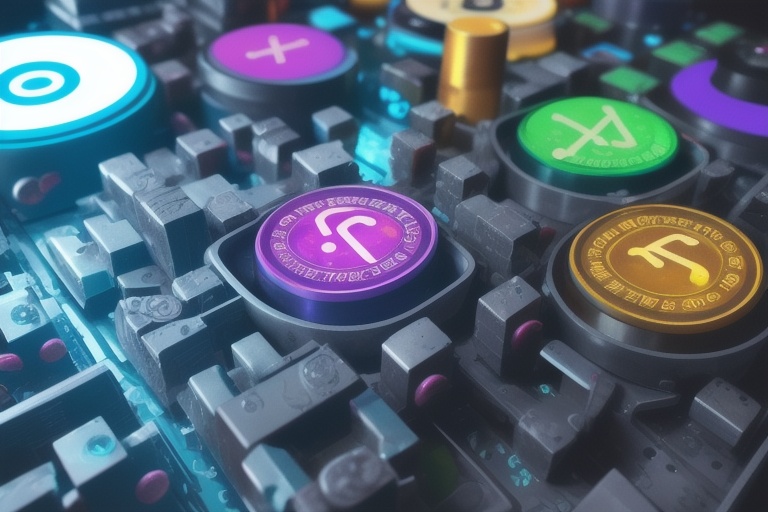The trajectory of artificial intelligence (AI) poses a transformative force on our world, wielding the power to redefine diverse industries and daily experiences. In just a decade, we've watched AI evolve from a concept primarily found in the domains of science fiction into a tangible and progressively integrated element of modern life. The advancements that await us in the next ten years are poised to eclipse what we've seen thus far. As we step forward, we must examine ten astonishing predictions for AI's role by the year 2030, touching on its potential to reach human-level intelligence, revolutionize healthcare, modify transportation through self-driving cars, accelerate scientific discoveries, reshape education, influence the job market, impact the economy, drive the rise of robotics and automation, foster geopolitical shifts, and the overarching imperative of maintaining human control over AI systems.
The trajectory of artificial intelligence (AI) poses a transformative force on our world, wielding the power to redefine diverse industries and daily experiences. In just a decade, we've watched AI evolve from a concept primarily found in the domains of science fiction into a tangible and progressively integrated element of modern life. The advancements that await us in the next ten years are poised to eclipse what we've seen thus far. As we step forward, we must examine ten astonishing predictions for AI's role by the year 2030, touching on its potential to reach human-level intelligence, revolutionize healthcare, modify transportation through self-driving cars, accelerate scientific discoveries, reshape education, influence the job market, impact the economy, drive the rise of robotics and automation, foster geopolitical shifts, and the overarching imperative of maintaining human control over AI systems.
Achieving Human-Level Intelligence
One of the most tantalizing frontiers in AI is the pursuit of human-level intelligence, known in the field as artificial general intelligence (AGI). Progress in AI research, driven by deeper, more complex neural networks and exponential leaps in computing power, is steadily bridging the gap between AI capabilities and human cognition. This endeavor is not merely about imitating human thinking but also about machines mastering intricate decision-making processes, advanced problem-solving skills, and perhaps even creative expression. As AI edges closer to this goal, the implications for society are profound, potentially leading to a future where machines can take on tasks that currently require human intellect and intuition.
Revolutionizing Healthcare
The healthcare sector is on the cusp of an AI revolution. With machine learning algorithms now capable of diagnosing illnesses with increasing accuracy and aiding in the development of personalized treatment protocols, AI's influence on health and wellbeing is substantial. Robotic surgery, another AI-driven innovation, is enhancing precision in operating theaters and reducing recovery times for patients. The ongoing fusion of AI with medical science promises to yield more efficient care, better health outcomes, and potentially lower healthcare costs.
The Dominance of Self-Driving Cars
Autonomous vehicles, once a speculative concept, are rapidly approaching a state of normalcy. AI is the cornerstone of this movement, with self-driving cars poised to reshape transportation by significantly improving traffic flow and offering mobility solutions for those unable to drive. Beyond convenience, the widespread adoption of autonomous vehicles carries the potential to reduce accidents caused by human error and redefine the design of our cities and infrastructures.
Accelerating Scientific Discoveries
The path to new scientific milestones is being expedited by AI's remarkable ability to process and analyze vast amounts of data faster than ever before. This capability enables researchers to uncover insights and patterns that might have otherwise remained elusive, paving the way for breakthroughs in fields such as climate science, astrophysics, and materials science.
Transforming Education
In the realm of education, AI is making strides in tailoring learning to individual needs and learning styles. Adaptive learning technologies are emerging, allowing for personalized educational journeys that enhance student engagement and success. As AI continues to integrate into our schooling systems, the opportunities for improved educational outcomes and lifelong learning expand substantially.
Job Disruption and Creation
While AI is a powerful engine for innovation, its rise inevitably disrupts the labor market. Automation and AI technologies could supplant certain job categories, compelling workers to adapt and transition into careers that are uniquely human and less susceptible to automation. Nonetheless, with disruption comes opportunity; novel vocations will emerge amidst the transformation, shaped by AI's evolving role in various industries.
Economic Impact
AI's integration into diverse sectors has the potential to fuel significant economic growth. By augmenting productivity and creating new markets, AI could become a catalyst for prosperity. However, the benefits are unlikely to be uniformly distributed, raising concerns about the exacerbation of wealth disparities. We must navigate these economic waves with policies aimed at equitable growth.
The Rise of Robotics and Automation
Robotics, combined with AI, is ushering in a new era of automation that extends well beyond the factory floor. From service robots in retail to precision drones in agriculture, the applications for intelligent machines are limitless. As we integrate these technologies, it becomes increasingly important to address the ethical and social challenges they pose.
Geopolitical Shifts
The global landscape could witness shifts influenced by the advancement of AI. Nations with the foresight and resources to invest heavily in AI research and development may gain significant geopolitical leverage. As the balance of power potentially shifts, the race for AI supremacy could redefine alliances and rivalries on the world stage.
The Importance of Human Control Over AI Systems
The pivotal question that looms over the rise of superintelligent AI is whether humanity will maintain control over these systems. Ensuring that AI is developed with robust ethical frameworks and governance is paramount to harnessing its benefits while mitigating risks. Embedding human values and safeguards within AI design and deployment safeguards against unintended consequences.
Steering Towards a Beneficial Future
The future interwoven with AI invites both optimism and caution. The choices and policies we forge today will sculpt the AI landscape of tomorrow. It is imperative that we recognize the long-term implications of AI's trajectory and guide its development with wisdom and foresight. As we cast our gaze upon a future where AI could benefit the entirety of humanity, we must proceed judiciously, embracing the technology's promise while vigilantly navigating the challenges it presents. We remain at the helm, steering AI on a course that enhances our world well beyond the precipice of 2030, and unleashing a legacy of positive transformation for generations to come.
The unfolding story of AI is one of potential and promise, crafting a narrative of progress that must be met with responsible stewardship. As AI continues to permeate the fabric of society, the power resides with us to shape a zeitgeist that reflects our highest ideals, one where the symbiosis between human and machine elevates us all.
Information for this article was gathered from the following source.




